Sorted by date Results 26 - 50 of 304

When it comes to plants, bulbs are about as easy as it gets, and now’s the time to get them in the ground. “You plant spring-flowering bulbs in fall, they grow over winter, flourish in spring, and go dormant in summer,” said Heather Stoven, a horticulturist with the Oregon State University Extension Service. “Once they’re in the ground, they do quite well over multiple years with little maintenance.” On top of that, bulbs are drought-tolerant. “That’s one of the great things about them,” St...
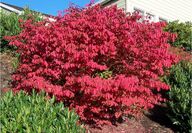
Mild days and cool nights this fall promised a spectacular show of color, and the promise came true. “This fall has been the best year for color in recent memory,” said Neil Bell, a horticulturist with Oregon State University Extension Service. “The weather has been perfect for the brilliant show we’re enjoying.” It takes a slow progression of cool to warm days and cool but not freezing nights to bring on such a glowing display, he said. That kind of weather brings on dormancy slowly and leads...

In spring garden centers stock a tempting variety of brightly colored tuberous begonias that are hard to resist. Gardeners have a tremendous choice of flower color in shades of orange, pink, yellow, white, and bi-colored. But these lush plants don’t grow over winter and must be protected. The tubers can be saved and planted again the next spring for another year of showy color. The tuberous begonias should not be confused with the low-growing wax begonias often called annual bedding begonias tha...

Reaching for a pesticide – even an organic one – should be a thoughtful act. Nothing used to kill pests is risk-free. First, decide if you need pesticides at all by practicing Integrated Pest Management or IPM, said Kaci Buhl, Statewide Pesticide Safety Education Program coordinator for Oregon State University Extension Service. Buhl defines IPM as a way of thinking about pest management that values: * Using knowledge about the pest’s habits, life cycle, needs and dislikes; * Using the least...
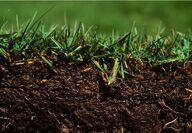
Lawns languish in the heat of summer unless showered with the water they require to thrive. But not to worry, the grass isn’t dead. Come fall when the rains start again, grass greens up quickly, said Alec Kowalewski, turf specialist for Oregon State University’s Extension Service. While letting your lawn go dormant in summer isn’t a bad thing — especially with concern about water shortages — lack of irrigation does allow weeds to gain a foothold, he said. And regular wear and tear can cause com...
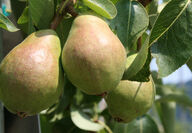
Anticipation of ripe pears and apples peaks in fall as fruits hang heavily from branches and begin their gravity-aided trip to the ground. But how do you know when it’s prime picking time? According to Steve Castagnoli, a horticulturist with Oregon State University’s Extension Service, the signs are different for apples and pears. “It’s much easier to recognize ripeness in apples,” he said. “Pears typically won’t ripen to eating quality on the tree so you can’t go out and taste one.” Still, th...
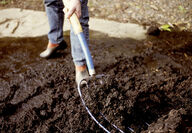
While the practice of no-till gardening is not new, information has traditionally centered on agricultural field crops. Now, home gardeners are catching on. “The concept of no-till has been around for a couple of decades, but research has been very focused on field crops like wheat and corn, things largely grown in the Midwest,” said Erica Chernoh, Oregon State University Extension Service horticulturist. “There’s not much on vegetable production or fruit. There’s a lot to learn, and research...
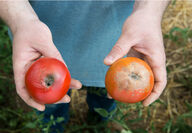
For most gardeners it’s been a normal or above-average year for the country’s most popular vegetable. “It was a fairly decent season for tomatoes,” said Brooke Edmunds, horticulturist with Oregon State University Extension Service. “We got warm enough and didn’t have any early cold spells. If you were irrigating, you probably had a pretty good year.” Some things – like weather – you can’t control. Tomatoes, which are actually a fruit, thrive at ambient temperatures between 65 and 85 degrees and...

Even as the days shorten precipitously during the onward march to the fall equinox, August heat is still a threat. Temperatures of 100 F and up are expected next week. Hydrate and stay cool! But when temperatures stay reasonable, your garden needs you — and you need your garden. There’s plenty you can do to help your garden. Your investment will be repaid in a multitude of ways. Gardens provide relaxation, peace of mind, food, an outlet for exercise, and just the enjoyment of a beautiful environ...
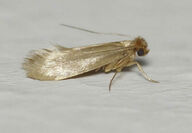
Controlling pests outdoors is a common summer activity for gardeners, but it’s also important to know how to safely and effectively protect against an insect that feeds indoors and can ruin clothing. Mothballs, one of the most common methods to control clothes moths, need to be recognized as a pesticide that can be harmful to humans or animals when misused, according to Tim Stock, Extension integrated pest management education specialist and director of the OSU Extension School IPM Program. ...
Roses have been adored as a symbol of beauty and love for thousands of years. If you haven’t grown them yet, you might have heard they are fussy – a rep earned by certain hybrid tea types – but the majority are very easy to grow. Choose garden-ready varieties, and follow their simple care requirements, and you’ll be rewarded with bountiful blossoms for decades. “They’re actually one of the easier garden plants to grow,” said Dan Estacio, president of Terra Gardens Nursery & Bark, a garden center located in Salem, Oregon. “They’ll survive both a...
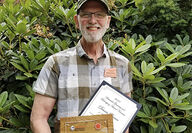
The Oregon State University Extension Master Gardener Program and the nonprofit Oregon Master Gardener Association have recognized five Oregon gardeners with statewide awards that reflect their dedication and commitment to the practice. Lynn Kunstman of Jackson County and Marilyn Berti of Washington County shared the 2023 Statewide Master Gardener of the Year award. Dennis Brown of Multnomah County was honored with the inaugural Growing and Belonging Award. The statewide Behind the Scenes...
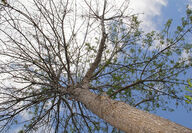
In the year since the emerald ash bud borer was detected in Oregon, questions have been pouring in about what to do if an ash tree becomes infested. Currently, the emerald ash borer has been found in trees only in Washington County, where a quarantine prohibits moving ash (Fraxinus) or fringe tree (Chionanthus) wood in or out of the area. Dave Shaw, a forest health specialist with the Oregon State University Extension Service, encourages homeowners to not take down their ash trees before they ar...
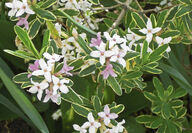
Drawing a line around the house with fire-resistant landscapes can mean the difference between a home consumed by flames and one left standing. “Fire specialists often show pictures of houses where people took adequate precautions,” said Brad Withrow-Robinson, a forester with Oregon State University’s Extension Service. “I’ve seen lots of photos of land charred all around and a house left standing in the middle because the owners created a fire-resistant space next to it. Not always, but often...
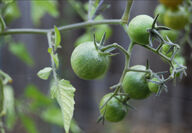
Reality can get skewed when there are so many sources of information - books, magazines, newspapers, nurseries, and, most of all, the internet and social media open up lots of room for contradiction. So, how do you find the right answer to gardening questions? Experts from Oregon State University Extension Service stepped up to bust some common gardening myths. Read on to get some research-based answers to 10 common misconceptions. For additional questions, call the OSU Extension master...
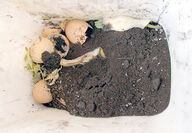
The most consumed drink in the world has more benefits than just keeping us awake. Spent coffee grounds can be used as a soil amendment and compost ingredient, while liquid coffee acts as an effective slug killer. According to various sources, between 400 billion to 1 trillion cups of coffee are consumed around the world every year. No matter the number, that’s a lot of coffee, which means a lot of spent coffee grounds. Using coffee grounds in the garden keeps them out of the waste stream and g...
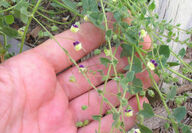
Summer has arrived and so have the weeds to take over our gardens and make us tear our hair out in frustration. Ed Peachey, Oregon State University Extension Service weed specialist, can relate. He sees weeds everywhere and has plenty of advice to share. The first line of defense is identification. “If you don’t know what you have, you don’t know what to do,” he said. “Each species has unique characteristics and vary in how they are controlled.” Even those who subscribe to the philosophy...
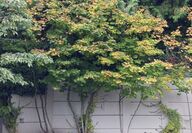
In the 1980s, the utility Denver Water coined the term “xeriscape” by combining the word “landscape” with the Greek prefix “xero” for “dry.” A niche movement was born, but the use of low-water shrubs and plants was at the time predominantly limited to regions with naturally arid climates, like Colorado. With droughts intensifying in severity, duration, and extent across the country, a shift is occurring in the plant world. The demand for drought-tolerant landscaping has surged not only in arid r...
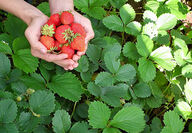
June is a great month for gardening. It has great weather, long days, pleasant evenings and, typically, mild weather. (We know, try telling that to the 2021 Heat Dome, which was severe, but was also an outlier.) So, what exactly can you do in the garden this month? Well, it might be easier to list the things you can’t do! The Oregon State University Extension Service June garden calendar, is full of ideas and advice. You can be as busy as you want to be. Here are a few of the tips: * Your l...
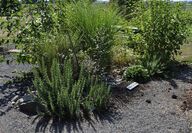
As water runs down roofs, over driveways and patios, and off other impervious surfaces, it might pick up pollutants as it flows directly into streams, wetlands, lakes, and groundwater aquifers. Stormwater runoff from impervious surfaces has been routed directly to streams through stormwater pipes and ditches with little infiltration or treatment, according to Derek Godwin, Oregon State University Extension Service water management and conservation specialist. That’s because municipalities f...
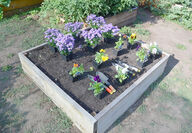
Gardening is one of the more therapeutic things a person can do – emotionally, mentally, and physically – but for some, it seems out of reach. Good design and practices can make gardening accessible for everyone. “We all have challenges if we live long enough,” said Corinne Thomas-Kersting, a retired speech-language pathologist and nine-year Oregon State University Extension Service Master Gardener. “We have different challenges. Even when you’re young and healthy there are things to do to pr...
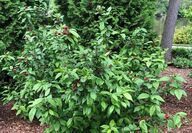
Most gardens have a diversity of plants, usually with a representation of at least one or two categories. This would include annuals, perennials, shrubs, vines and trees. In the urban gardens of many homeowners today, there may be fewer trees and more shrubs due to limited space. Sometimes the distinction between a shrub and a tree is very subjective, but usually, a shrub will be shorter than a tree with multiple branches. Of course, this is not a hard and fast distinction because some trees...
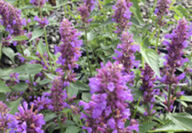
Tips for picking pollinator-attracting plants for your garden Pollinators need our help. From birds and bees to butterflies and other crucial insects, pollinators’ numbers are declining as loss of habitat, weed pressure, and climate change chip away at delicate ecosystems. The myriad ways they support the planet include helping to create one out of three bites of food we take. But there’s good news — homegrown habitats can make a difference. In “Nature’s Best Hope: A New Approach to Conservat...
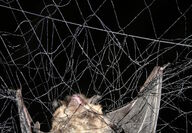
With a swish of his cape, Count Dracula ruined the reputation of bats forevermore. Maybe. In the 125 years since Dracula came on the scene and spooked us into believing bats are bad, we’re beginning to get a grasp on the truth: Their voracious appetite for insects turns them into a living pesticide that saves farmers billions of dollars a year and helps rid our backyards of insects like mosquitoes, moths, grasshoppers, flies, and beetles. Some species are critically important pollinators for c...
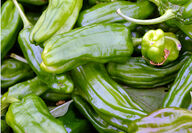
David Coon is on a mission. Not exactly a Mission Impossible save-the-world mission; more of a quest. He’s out to educate others about the potential for unusual vegetables in the garden and the kitchen. Coon, an Oregon State University Extension Service master gardener, knew he was on to something when he’d be stopped in the grocery store by shoppers fascinated by the produce he was sending through the check stand. “For instance, a few years ago when I could finally find fennel in the store...